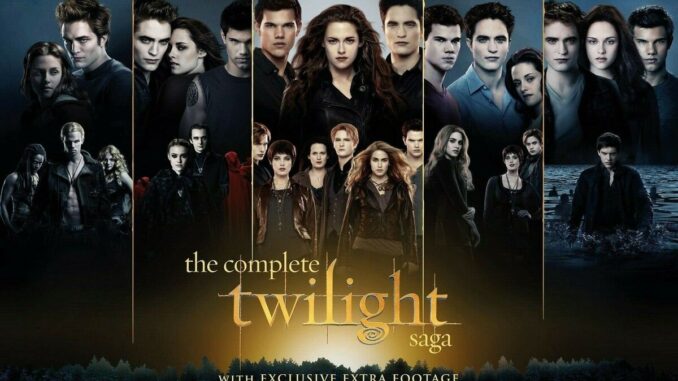
The Shimmering Echo: Will There Be a Twilight Reboot? What Stephenie Meyer Said About the Saga’s Future
In the perpetual carousel of pop culture, where yesterday’s nostalgia becomes tomorrow’s Netflix binge, few franchises cast as long and shimmering a shadow as Twilight. A decade after its cinematic reign, the whispers of a reboot inevitably begin, a siren song for studios hungry for pre-established fanbases and a collective gasp – often followed by a murmur of apprehension – from the original devotees. The question isn't merely "will it happen?", but "how will it happen?", and critically, "what does Stephenie Meyer, the architect of this intricate, glistening world, have to say about it?"
The allure of the reboot is multifaceted, a potent brew of financial pragmatism and cultural zeitgeist. For Hollywood executives, a Twilight reboot represents a golden goose. It’s a ready-made audience, a pre-etched roadmap of lore, characters, and emotional beats that, when handled correctly, promises astronomical returns. In an era dominated by streaming wars and the insatiable demand for content, an IP as beloved and debated as Twilight is a prime candidate for a refresh. Imagine a prestige TV series, unconstrained by two-hour movie runtimes, delving deeper into the Volturi’s history, exploring the intricacies of werewolf packs, or even giving us more of the delightful Cullen family dynamics. The possibilities for expansion and nuanced storytelling are tantalizing, offering a chance to mature with the original fanbase while simultaneously capturing a new generation.
Yet, for the fans who queued for midnight releases and debated the merits of Team Edward versus Team Jacob with religious fervor, the idea of a reboot treads on sacred ground. There's the thrill of revisiting Forks, of seeing a beloved story told anew with contemporary effects and perhaps a different directorial vision. But there’s also a profound fear: the fear of tarnishing the original, of miscasting iconic roles, or worse, of "fixing" what wasn’t perceived as broken. The original films, for all their camp and earnestness, captured a specific moment in time and a particular aesthetic that resonated deeply. A reboot, then, becomes a delicate tightrope walk between reverence and reinvention, a gamble that could either rekindle a lost magic or simply expose the flaws of an unnecessary retread.
This is where Stephenie Meyer, the visionary behind the entire phenomenon, becomes the pivotal voice. Her statements, gleaned from interviews and reflections over the years, paint a picture not of outright rejection, but of a thoughtful and cautious openness, largely favoring expansion rather than mere repetition. Meyer has expressed a deep affection for her characters and the world she built, and notably, she is not opposed to revisiting it. Her surprise release of Midnight Sun, the saga's first novel told from Edward's perspective, demonstrated her continued engagement and a willingness to offer new dimensions to existing narratives. This wasn't a reboot, but an enhancement, a deepening.
Her musings hint less at a carbon copy remake and more at an evolution of the saga. Meyer has openly spoken about having ideas for more stories within the Twilight universe, tales that could explore new characters, dive into different historical periods, or even follow existing characters into a future beyond the original tetralogy. This suggests a desire to grow the world, to add new wings to the already magnificent mansion, rather than tear it down and rebuild it exactly as it was. Imagine a spin-off series focusing on the nomadic vampires, or a prequel exploring Carlisle Cullen's early life. This approach respects the integrity of the original while offering fresh narratives for eager readers and viewers.
Therefore, "Will there be a Twilight reboot?" is perhaps the wrong question. It might be more accurate to ask, "Will the Twilight saga continue to evolve and expand?" The answer, according to Stephenie Meyer, seems to be a cautious, yet hopeful, yes. Her vision leans towards new chapters, different perspectives, and unexplored corners of her richly imagined world, rather than a direct shot-for-shot remake of Bella and Edward's initial romance. The shimmering echo of Twilight is not fading; it's transforming, hinting at a future where new stories unfold under the perpetually overcast skies of Forks, guided by the original storyteller’s enduring imagination. The saga, like its immortal characters, seems destined for an enduring, perhaps evolving, existence, a testament to the timeless appeal of forbidden love and the enduring power of a truly compelling narrative.
